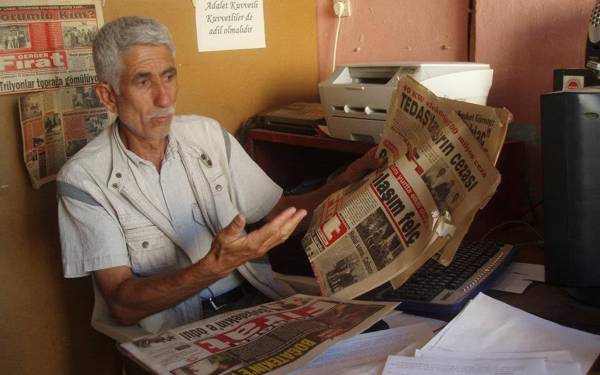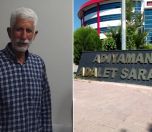Click to read the article in Turkish
The Constitutional Court has ruled that the sentence given to Hacı Boğatekin, the owner and responsible managing editor of Gerger Fırat, a local newspaper in Adıyaman, for reporting on 2012 excavations works in the city based on the dreams of a cleric violated freedom of the press and expression.
The incident happened after M.B., an imam of a mosque in the Güngörmüş village in the Gerger district of Adıyaman, said that he had dreamed of a "martry of Islam" who wanted his grave to be relocated.
Afterwards, the relevant authorities (the governor's office, the mufti's office and others) were informed and excavation works started with the participation of 20 imams. But the grave of the "martyr of Islam" could not be found.
The Gerger Fırat newspaper published several articles about the issue entitled, "Imam's martyr dream fizzled into nothing" (July 2012), "Martyr's ditch closed" (October 2012), and "Martyr's grave below, library above" (December 2012). Boğatekin gave some information about the imam M.B. in the first article.
"The imam ... was arrested and sent to jail for armed injury. He served months in prison. He injured the person he shot, but he survived. And the imam was released after a while ... Then he got married for the second time ... He received psychological treatment while he was in prison."
Lawsuit overturned
M.B. said this information had nothing to do with the excavation works, and alleged that Boğatekin violated his privacy. He filed a lawsuit with the Gerger Civil Court of First Instance.
The court accepted the lawsuit and concluded that the excavation had nothing to do with the information in the article in question. The court in June 2016 sentenced Boğatekin to pay the cleric 5,000 lira for damages.
The case was brought to the Court of Cassation, the top appeals court of the country. The 4th Legal Chamber of the Court of Cassation overturned the decision, concluding that the amount of compensation was excessive.
In May 2019, the local court ruled that Boğatekin should pay 3,000 lira for damages.
The Constitutional Court ruling
Boğatekin appealed against the decision again, but the Court of Cassation rejected it because the verdict was final. Boğatekin then took the case to the Constitutional Court.
The top court noted that M.B. had not refuted the information in the article in question. It said the information's role in the news article and its public aspect should be evaluated.
The information demonstrated the psychological state of M.B., and thus there were "strong intellectual ties" between the article and the incident.
It was M.B. who caused the reporting of the incident, the court said.
It concluded that Boğatekin's sentence violated freedom of expression and freedom of the press, which are guaranteed by articles 26 and 28, respectively.
The top court also concluded that the six-year trial period was not reasonable and Boğatekin should be paid 30,000 lira of compensation because of that. (HA/VK)




.jpg)



